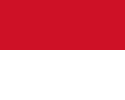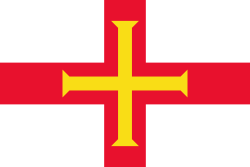Højindkomstland
Landegrupperinger baseret på Verdensbankens ansættelse af BNI per indbygger, 2008. Et højindkomstland eller en højindkomstøkonomi er af Verdensbanken defineret som et land med en BNI per indbygger på 11.906 amerikanske dollar eller mere (2008).
Selv om betegnelsen undertiden anvendes i flæng med begreber som den første verden eller iland, er de tekniske defintioner af begreberne vidt forskellige. Mens første verden refererer til de rige lande, der allierede sig med USA og NATO under den kolde krig, anvender bl.a. CIA og Den Internationale Valutafond andre parametre end BNI per indbygger i klassificeringen af lande som "udviklede", og ifølge FN er visse højindkomstlande samtidig udviklingslande. CCASG-landene er f.eks. klassifceret som højindkomstlande under udvikling.
Højindkomstlande
Følgende 80 lande og territorier er ifølge Verdensbanken klassifcieret som højindkomstlande.[1]
34 af landene er medlem af OECD.
Højindkomstlande, der ikke er klassificeret af Verdensbanken:
Referencer
Medier brugt på denne side
Flag of Canada introduced in 1965, using Pantone colors. This design replaced the Canadian Red Ensign design.
Det er let at give dette billede en kant
Finlands flag
Forfatter/Opretter: Nightstallion, Licens: CC0
Flag of French Polynesia
Det er let at give dette billede en kant
Flag of Portugal, created by Columbano Bordalo Pinheiro (1857–1929), officially adopted by Portuguese government in June 30th 1911 (in use since about November 1910). Color shades matching the RGB values officially reccomended here. (PMS values should be used for direct ink or textile; CMYK for 4-color offset printing on paper; this is an image for screen display, RGB should be used.)
The flag of Slovenia.
- "The construction sheet for the coat of arms and flag of the Republic of Slovenia
- is issued in the Official Gazette Uradni list Republike Slovenije #67, 27 October 1994
- as the addendum to the Law on the coat of arms and flag."
Trinidad og Tobagos flag
Flag of Austria with the red in the Austrian national colours which was official ordered within the Austrian Armed Forces (Bundesheer) in the characteristic “Pantone 032 C” (since May 2018 the Red is ordered in the characteristic “Pantone 186 C”.)
The flag of Aruba
The national flag of Nauru. Pantone 280c (Blue) and Pantone 123c (Yellow). On Pantone's official website these colours have the hexadecimal codes of #012169 and #FFC72C.
Forfatter/Opretter: Fry1989 eh?, Licens: CC0
Flag of the Isle of Mann. This version has the triskelion centered as a whole rather than based upon the imaginary circle created by the prongs of each leg.
Coat of arms of the Holy See with gold key in bend as described in Donald Lindsay Galbreath, A Treatise on Ecclesiastical Heraldry (W. Heffer and Sons, 1930), p. 9; Bruno Bernhard Heim, Heraldry in the Catholic Church: Its Origin, Customs and Laws (Van Duren 1978 ISBN 9780391008731), p. 54; Heraldry Society of Great Britain; Michel Pastoureau, "Keys" in Philippe Levillain, The Papacy: An Encyclopedia (Routledge 2002 ISBN 9780415922302), vol. 2, p. 891.
The flag of Guam, courtesy an e-mail from the author of xrmap. Modifications by Denelson83.
Flag of Liechtenstein











































































